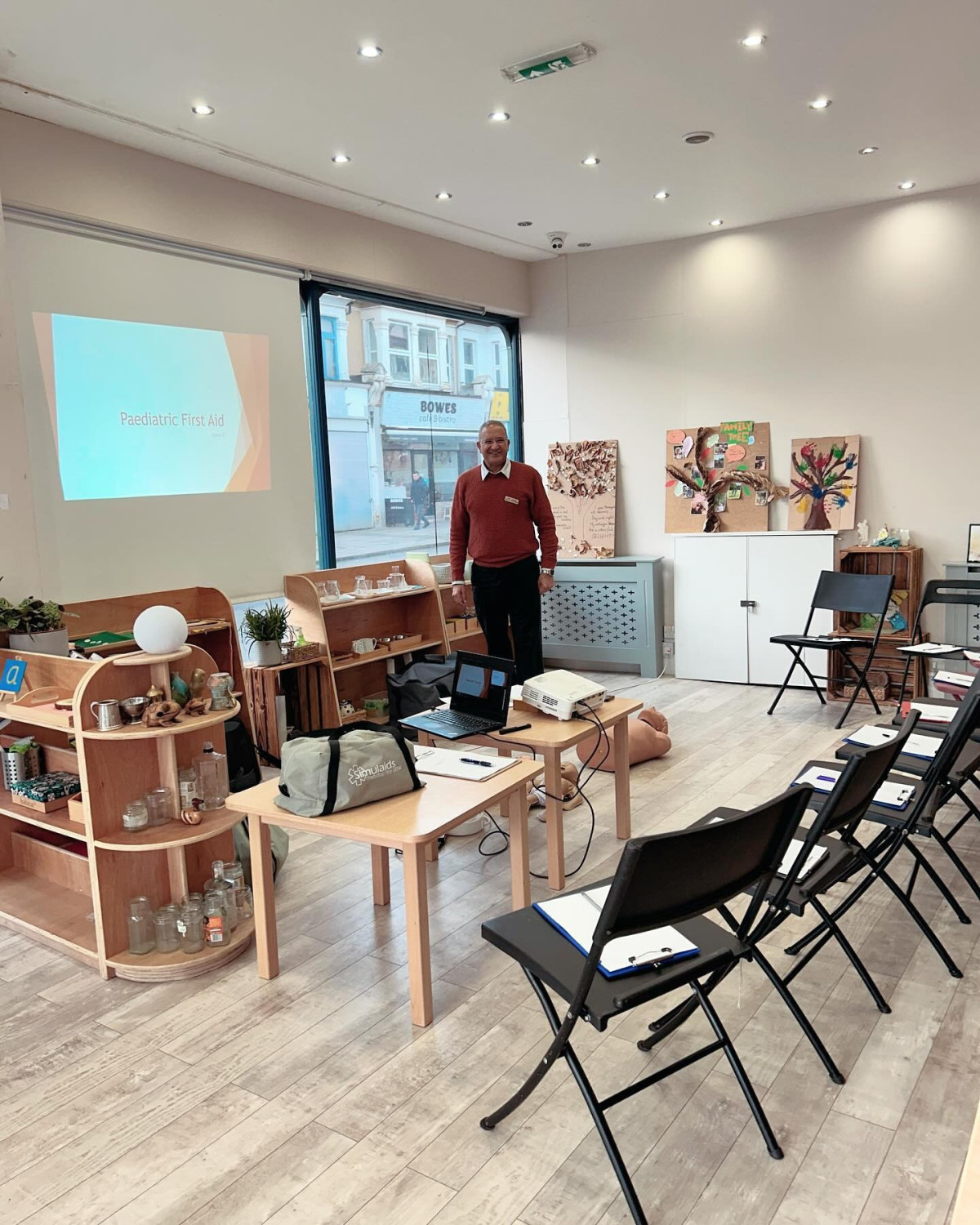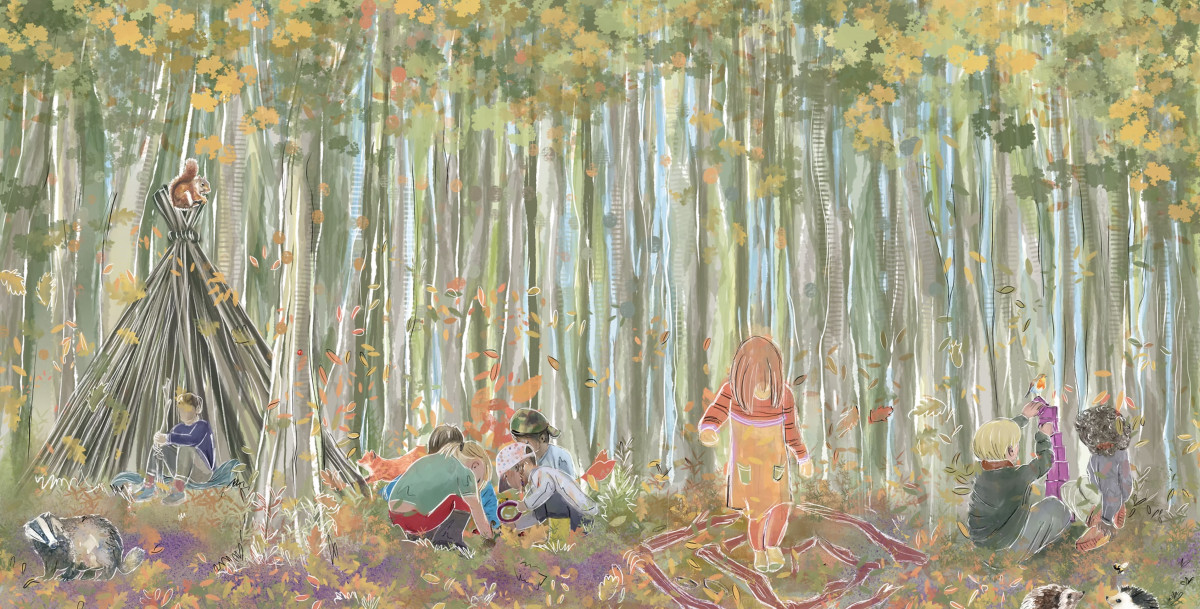What Is Environmental Education in Early Years?
Potters Bar, United Kingdom - July 10, 2025 / Woodland Wanderers /
Woodland Wanderers Champions Sustainable Education for Early Years in Bowes Park
A North London Montessori Forest School redefines eco-friendly early childhood education with a unique sustainability ethos rooted in nature, community, and child-led discovery
Woodland Wanderers, an eco-conscious Montessori forest school in Bowes Park, is setting a new standard for sustainable early childhood education in London. As global awareness of environmental issues grows, so does the importance of cultivating eco-literacy from the earliest stages of life. Woodland Wanderers is leading this movement by embedding sustainability into its curriculum, daily practice, and community philosophy—making it a model for what a sustainable preschool London should look like.
What Is Environmental Education in Early Years?
Environmental education in early years is more than just teaching children the names of plants and animals—it’s about helping them form meaningful connections with the natural world. At Woodland Wanderers, this begins with regular immersion in outdoor woodland spaces, where children develop sensory awareness, emotional intelligence, and social skills through unstructured play and guided discovery.
Their nature-based learning programme is guided by the Montessori philosophy of respect, independence, and holistic growth. Children are encouraged to explore, observe, and ask questions—laying the foundation for a lifelong curiosity about the environment and their role within it.
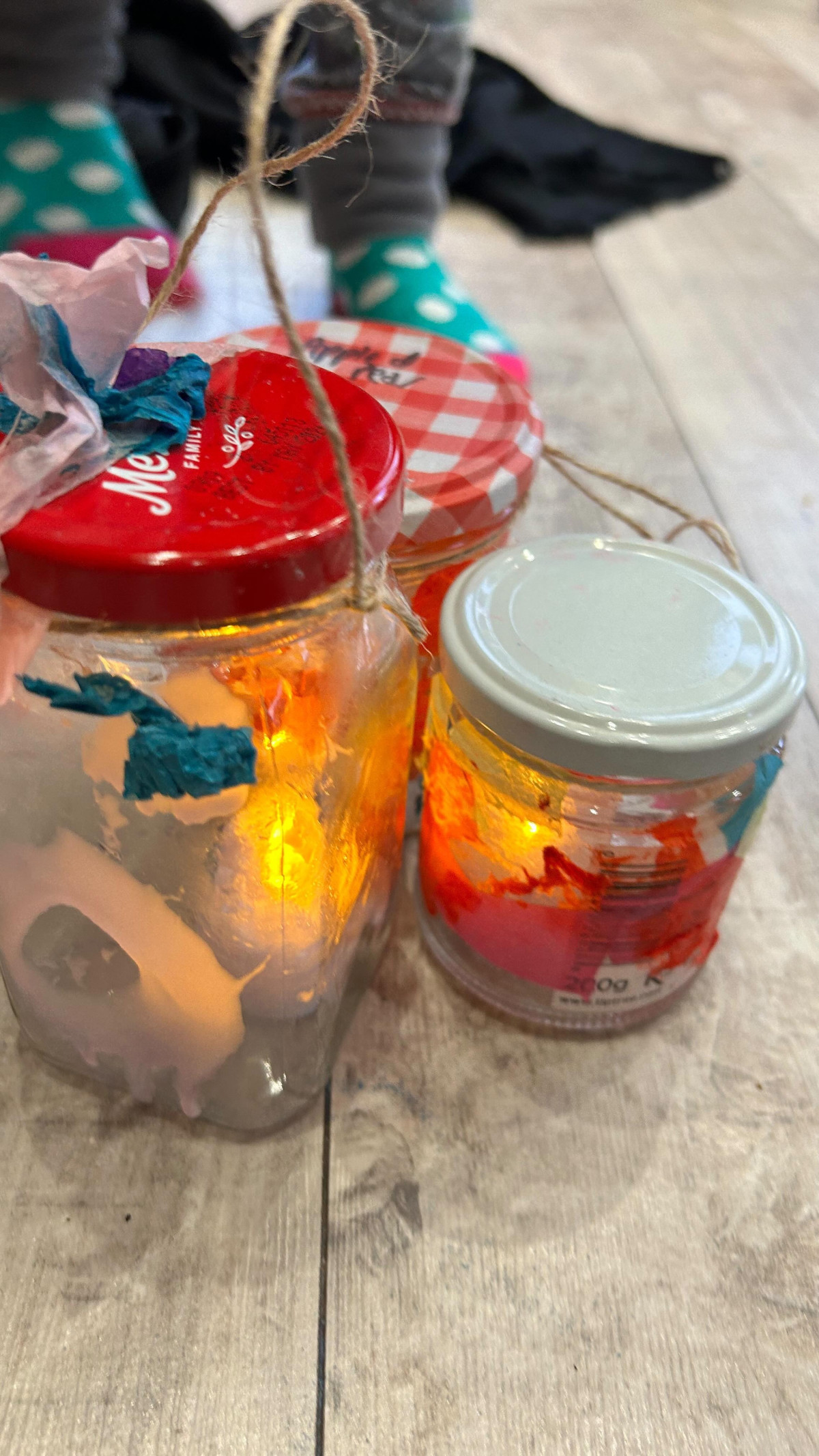
A Montessori Forest School Grounded in Sustainability
Woodland Wanderers blends the freedom of forest school methodology with the intentionality of Montessori education. This unique approach encourages young learners to make independent choices while fostering responsibility for themselves, others, and the planet.
Sustainability is not taught as a topic—it is lived. From their natural play materials to their low-waste policies, Woodland Wanderers has cultivated a culture where eco-friendly nursery practices are part of every interaction and activity. The school’s daily rhythm and structure reflect an understanding of how the physical environment shapes early learning outcomes.
Can Toddlers Learn About the Environment?
The answer is a resounding yes. Woodland Wanderers proves that teaching children about the environment begins with engagement, not explanation. Through real-life experiences—planting seeds, sorting recycling, composting lunch scraps, and noticing weather patterns—young children absorb environmental values intuitively.
By encouraging toddlers to interact with natural elements, they learn key concepts like cause and effect, cycles of growth, and stewardship. These hands-on interactions promote brain development, language acquisition, and emotional regulation—while gently building eco-conscious awareness. A child who learns to care for a tree or protect a bug begins to understand their role in the wider ecosystem.
The Baobab Tree: A Living Symbol of Minimal-Waste Ethos
At the heart of Woodland Wanderers’ sustainability vision stands the baobab tree—revered across cultures for its endurance, community nourishment, and ability to thrive with minimal resources. It represents the school’s commitment to resilience and minimal waste ethos.
Children are introduced to the tree’s story early on. They learn that like the baobab, they can live thoughtfully, waste little, and support one another. The symbolism becomes real through classroom practices—reusing natural materials, repurposing art supplies, and composting instead of discarding. The baobab is not only a tree—it is a mindset embedded in every lesson.
Why Is Sustainability Important in Nursery?
The habits formed in early childhood lay the foundation for future values. Woodland Wanderers understands that sustainability in the nursery setting is not optional—it’s essential. Research shows that children who are introduced to eco-conscious behaviours early are more likely to carry those behaviours into adulthood.
Sustainability at nursery also models consistent behaviour for families and communities. When children see their educators composting, reusing materials, or examining their “ecological footprint,” it reinforces the idea that small choices matter. Woodland Wanderers doesn’t just prepare children for school—it prepares them for responsible citizenship in a changing world.
How Eco-Friendly Nurseries Work in Practice
Creating a truly eco-friendly nursery requires intention at every level—from building materials to food sourcing to daily routines. Woodland Wanderers has developed a model that is both practical and inspiring.
They prioritise low-impact materials in the classroom, such as wooden toys, metal tools, and natural fibres. Plastic is minimal and reused where appropriate. Snack times use reusable containers and cloth napkins. Cleaning products are non-toxic, and water is conserved with mindful use practices.
Energy usage is managed through efficient systems, and outdoor time is prioritised over screen time. Most impressively, the school continually reviews its own environmental impact with staff and children alike—demonstrating that green practices are not fixed, but always evolving.
How Do You Teach Sustainability to Young Children?
The key is to start with what children can see and feel. Woodland Wanderers teaches sustainability through real action, not abstraction. Children plant herbs and vegetables, water them daily, and watch them grow. They help gather natural materials for art, learn about recycling through sorting games, and discover the impact of waste when composting leftovers.
Through group discussions and storytelling, they reflect on how their choices affect the earth. Lessons are kept age-appropriate and emotionally resonant—focused on care rather than fear. Rather than emphasising climate anxiety, the school empowers children to feel capable of making positive changes, however small.
Outdoor Classrooms Built for the Future
The physical environment at Woodland Wanderers plays a powerful role in shaping sustainable learning. Their outdoor classrooms are not an afterthought—they are central to the school’s pedagogy. Trees, stumps, sand, stones, and open sky become tools for exploration and growth.
This eco nursery North London is intentionally designed to promote freedom of movement, deep sensory experiences, and hands-on experimentation. Natural loose parts replace commercial toys, allowing children to imagine, invent and repurpose—key tenets of sustainable thinking. Outdoor routines also minimise reliance on energy-intensive indoor resources.
Environmental Education Bowes Park: A Local Legacy
Located in the vibrant Bowes Park community, Woodland Wanderers has become a beacon of environmental responsibility. By offering a sustainable preschool London residents can trust, the school contributes to a larger cultural shift toward sustainability in early years.
Partnerships with local suppliers and community initiatives, such as seed swaps and family eco-days, extend the school’s impact beyond its gates. Woodland Wanderers actively encourages parents to mirror green habits at home and provides tools for families to reduce their own ecological footprints.
The Role of Community in Sustainable Education
At Woodland Wanderers, sustainability is not a solo journey—it’s a shared responsibility. The school fosters collaboration between educators, families, and children in building a supportive, eco-conscious community.
Parents participate in workshops on waste reduction, ethical consumption, and nature-based activities. Children bring home tasks like sorting recycling or collecting natural items for classroom use. These simple acts spark conversations and help align home life with school values.
In this way, sustainability becomes a language the entire community speaks—one rooted in respect, understanding, and accountability.
Linking Sustainability to Brain Development
Emerging research suggests that time in nature enhances executive function, attention span, and emotional regulation in young children. Woodland Wanderers aligns its sustainability practices with neuroscience-backed strategies for healthy brain development.
For example, natural light exposure supports circadian rhythm and sleep quality. Sensory-rich outdoor play builds neural connections and spatial awareness. Cooperative environmental activities encourage empathy, problem-solving, and social reasoning.
By pairing sustainability with developmental science, Woodland Wanderers delivers an educational experience that is both ecologically and neurologically sound.
Minimal Waste as a Daily Discipline
Woodland Wanderers does not treat sustainability as a special event—it is woven into every hour of the day. Children are gently guided to use only what they need, to think twice before discarding, and to see value in what others might overlook.
From art projects using leaves and fabric scraps, to snack routines that minimise packaging, the school models a culture of restraint without rigidity. This green practices nursery teaches that less is not only enough—it’s often better.
Reflecting on Our Ecological Footprints
A standout feature of the Woodland Wanderers curriculum is the “Ecological Footprint Reflection,” where children and families are encouraged to explore the impact of their choices.
Children begin by asking questions: “Where does this come from?” “What happens when I throw it away?” These small inquiries open the door to bigger thinking about sustainability. Through regular discussions, visual storytelling, and group projects, even the youngest learners begin to grasp the ripple effects of consumption.
This practice builds agency and awareness—critical ingredients for environmental stewardship.
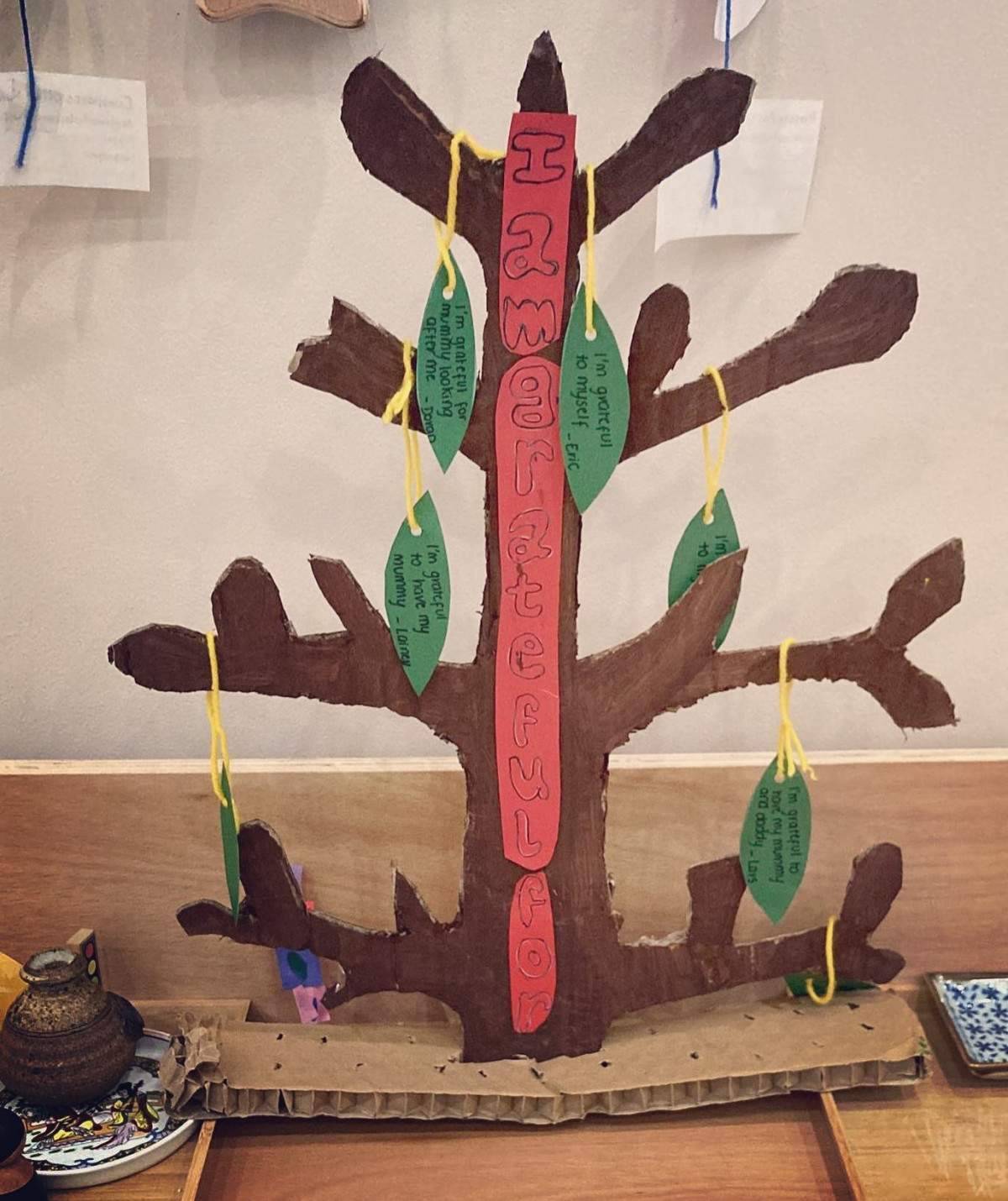
Eco-Literacy as a Foundation for the Future
By focusing on environmental education preschool values in the earliest years, Woodland Wanderers equips children with eco-literacy as a core skill—on par with numeracy and language.
In today’s climate-conscious world, understanding how ecosystems work, how materials are used, and how choices matter is vital. Woodland Wanderers believe children should not have to unlearn bad habits later in life—they should start with the right ones.
Their curriculum ensures that the next generation grows up capable of meeting the planet’s challenges with creativity, compassion, and courage.
Reducing Anxiety, Building Empowerment
While climate change can feel overwhelming, Woodland Wanderers offers a model of education that replaces fear with empowerment. Children are not burdened with problems too big for their shoulders—they are shown how their everyday actions contribute to a healthier world.
This empowerment fosters resilience, optimism, and a sense of belonging. Children learn they are not powerless—they are participants in shaping a sustainable future.
Discover How Woodland Wanderers Grows Green Learners
Families in North London seeking more than just a preschool are encouraged to visit Woodland Wanderers and experience their sustainability-led learning environment. Their integrated approach offers meaningful answers to parents asking, “How do I raise a child who respects the earth?”
With its Montessori roots, forest school spirit, and commitment to environmental education, Woodland Wanderers invites children to explore the world as it is—and imagine how it could be better.
Sustainability Starts with the Smallest Hands
At Woodland Wanderers, even the tiniest actions are seen as powerful. When a toddler learns to sort compost, refill a water bottle, or gently carry a leaf, they are learning care, responsibility, and patience. These small acts become habits—habits that shape lifelong values. Sustainability is not taught in a single lesson, but reinforced in countless little moments throughout each day. By trusting children with responsibility from the start, Woodland Wanderers plants the seeds of eco-consciousness early—and watches them grow.
Enrol in a Greener Pathway for Your Child
If you believe that education should nurture both the mind and the planet, Woodland Wanderers welcomes your family. Come and see how our sustainability programme, inspired by ecological values and driven by child-centred discovery, prepares young learners for a more thoughtful world.
Explore our nature-based setting, meet our passionate educators, and learn how we turn daily moments into meaningful lessons about care, community and responsibility. A greener education begins here—with your child, your choices, and a nursery that leads by example.
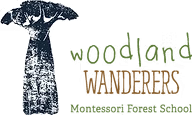
Contact Information:
Woodland Wanderers
98 Hatfield Road Potters Bar
Potters Bar, Hertfordshire EN6 1HX
United Kingdom
Asha Chandegra
+44 7825 781270
https://www.woodlandwanderers.info/
